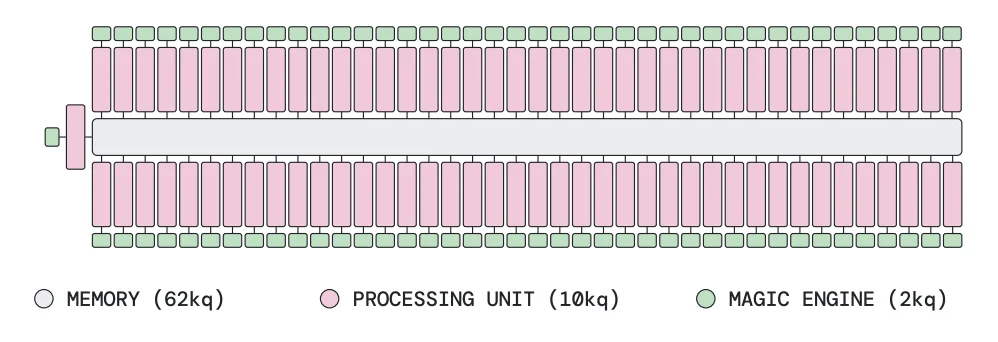Insider Brief
- China is expanding its superconducting quantum computer production line, increasing its capacity from assembling five quantum computers simultaneously to eight, according to a report by state-run media ECNS.
- The Anhui Quantum Computing Engineering Research Center’s facility is responsible for the development of the 72-qubit Wukong chip.
- The research team reports it is developing next-generation chips with higher qubit numbers and greater stability, aiming to enhance China’s capabilities in quantum computing applications across industries like logistics, pharmaceuticals and materials science.
- Image: ChinaNews.com
China’s quantum ambitions are gaining momentum as it expands its superconducting quantum computer production line, according to a report by ECNS, a state-run news agency. The Anhui Quantum Computing Engineering Research Center reported that its facility will soon be capable of assembling eight quantum computers simultaneously, up from its current capacity of five, according to ECNS.
The Anhui center is responsible for producing superconducting quantum chips, a vital component in building quantum computers. Among its most prominent achievements is the Wukong chip, a 72-qubit superconducting quantum chip, which has been running successfully on China’s third-generation quantum computer, “Origin Wukong,” for nine months.
Jia Zhilong, the deputy director of the Quantum Computing Chip Provincial Key Laboratory, confirmed to ECNS that the chip’s integration into the system has demonstrated its reliability and robustness.

Increasing Production Capacity
The Anhui facility is undergoing an expansion to boost its capacity to assemble complete quantum computers. Currently, the assembly hall manages up to five quantum computers at a time, but the planned upgrades will increase this capacity to at least eight, according to the news service. Jia emphasized that this expansion is critical to meet the growing demand for quantum computing systems and reflects China is continuing its aggressive push into the sector.
The “Origin Wukong” superconducting quantum computer, which went operational on January 6, 2024, has already completed 270,000 quantum computing tasks, serving users from 133 countries and regions, ECNS reports.
Pioneering Next-Generation Quantum Chips
The research team at the Anhui Quantum Computing Engineering Research Center is also focused on developing the next generation of superconducting quantum chips with higher performance, greater qubit numbers, and improved stability, the news service reports. This effort aims to advance beyond the capabilities of the current Wukong chip and achieve more practical and scalable quantum systems for commercial and scientific use.
In the announcement covered by ECNS, the research team noted that enhancing the chip’s stability and increasing its qubit count is vital for advancing quantum computing technology. These improvements are critical for scaling quantum systems that can handle complex problems in industries such as logistics, pharmaceuticals and materials science.
State Media’s Role
It should be noted, as China’s state-run media outlet, ECNS is tasked with communicating China’s strategy of positioning the country as a leader in quantum technology. The Anhui Quantum Computing Engineering Research Center, heavily backed by state funding, has become a focal point in China’s drive to solidify its place in the global quantum landscape.
Located in Hefei, Anhui Province, China, The Anhui Quantum Computing Engineering Research Center is the epicenter of China’s quantum technology development.
The center has China’s first independently developed superconducting quantum computer production line. It has recently expanded its capabilities, increasing its capacity to assemble up to eight quantum computers simultaneously, an upgrade from its previous capacity of five. This expansion aligns with the center’s aim to scale quantum computer production and meet growing global demand.
In addition to hardware development, the center also collaborates closely with Origin Quantum, a leading Chinese quantum technology company. The two organizations worked together on several advances, including the development of China’s first quantum computing measurement and control system. This collaboration also reflects China’s approach to building an ecosystem for quantum technologies.
Next Steps in Quantum Development
With the Anhui center scaling up production and working on more advanced superconducting chips, China seems to be making its long-term vision for quantum computing becomes clearer. They are pushing for not just more capacity to build quantum computers, but the focus seems to be now shifting to developing next-generation chips that can push the limits of qubit performance and stability.
If these efforts succeed, China could expand its presence in the global quantum market and continuing its efforts to become a key player in quantum technology development.















